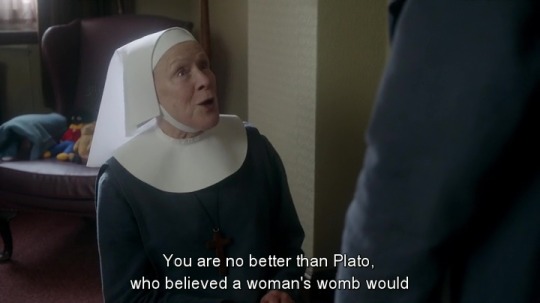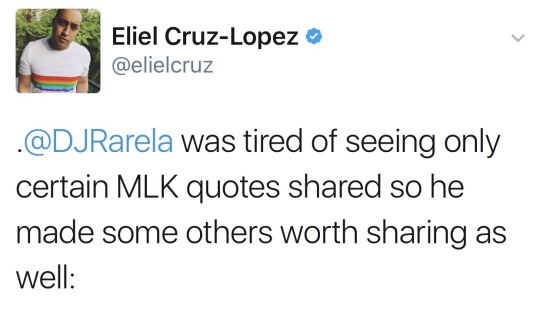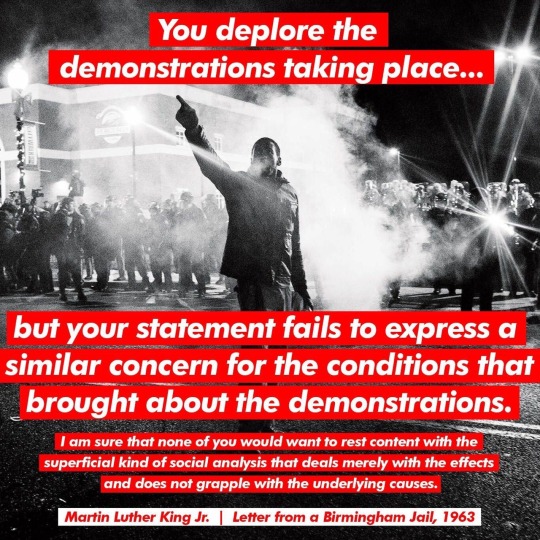Photo
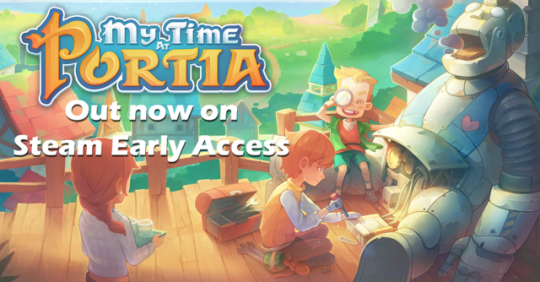
#MyTimeatPortia has launched into Early Access on PC! Rebuild paradise in our open-world RPG and crafting sim. thndr.me/nga6vi http://thndr.me/nga6vi
3 notes
·
View notes
Text
A story that may have relevance for others, or then again, maybe not:
When I was in college, about ten or so years ago, I was a history major. I wanted to learn to dance, so I joined a swing dance club on campus. To my surprise, this club had about twice as many men as women (in high school, the last time I’d tried dancing, the ratio had gone the other way–lots of girls, and boys only that you could drag by their ears).
But apparently, there had been some kind of word spread specifically to the STEM guys that dance was a way that they could meet girls.
So anyway. I joined the swing dance club, and met a few guys. And at one point, when socializing with the guys outside of dance class, one of them asked me what my research was on. (I had already established that I was an honors history student doing a thesis, just as he had established that he was an honors… I’m not sure if he was CS or Math, but it was one of those.)
So I gave him the thumbnail sketch of my research. Now, to be clear, an honors senior thesis, while nothing like what a graduate student would do, was still fairly in-depth. I had to translate primary sources from the original late-Classical Latin. (My professor said, basically, that while there were plenty of translations of my source material, that I’d only be able to comfortably trust them if I had at least made a stab at a translation of my own. And he was right.) And there was so much secondary material, often contradictory, that I had been carefully sorting through.
But I was able to sift it into a three-sentence summary of my senior thesis work, you know, as one does.
So I gave him that summary, and then asked–since he was also an undergraduate senior doing an honors thesis–what his research was on.
“Oh,” he said, “you wouldn’t understand it.”
Reader, I went home in a frothing rage. Because I had thought we were playing one game–a game of ‘let’s talk about what we’re passionate about!’– and he had been playing another game, which was, one-upsmanship. I had done my best to give a basically understandable brief of my research–and he had used that against me. As if my research, my painstaking translation, my digging through archives and ILLs of esoteric works, my reading of ten thousand articles in Speculum (yes, the pre-eminent medievalist journal in North America is called Speculum, I’m sorry, it’s hilarious/sad but also true), and then my effort to sum it up for him, was nothing. Because his research into some kind of algorithm or other was just too complex for my tiny brain to conceive of. Because I just couldn’t possibly understand his work.
Now, the important note here is that the person I went home to was my senior year roommate. She was a graduate student–normally undergrads and graduate students couldn’t be roommates, but we’d been friends for years, and the tenured faculty-in-residence used his powers for good and permitted us to be roommates that year. Anyway. My senior year roommate was basically… in retrospect I think possibly an avatar of Athena. She was six feet tall, blonde, attractive in a muscular athletic way, a rock climber and racquetball player, sweet but sharp, extremely socially awkward, exceptionally kind even when it cost her to be kind, and an incredibly brilliant computer science major who spent most of her time working on extremely complicated mathematical algorithms. (Yes, I was a little in love with her, why do you ask? But she was as straight as a length of rope, and is now happily married, and so am I, so it worked out.)
(Still, yes, she is my mental image of Athena, to this day.)
Anyway, I came home in a frothing rage to my roommate, the Athena avatar. And I said, “He made me feel like such an idiot, that I could sum up my research to him but his research was just too smart for stupid little me.”
And she shut her book, and smiled at me, with her dark eyes and her high cheekbones and her bright hair, and said, “If he can’t explain his research to you, then he’s not nearly as smart as he thinks he is.”
Now I hesitated, because I’d be in college long enough to have sort of bought into the ridiculous idea that if you couldn’t dazzle them with your brilliance, you should baffle them with your bullshit. But she said, “Look, I’ve been doing work on computer science algorithms that have significantly complicated mathematical underpinnings. What do I do?”
And I said, “Genetic algorithms–that is, self-optimizing algorithms–for prioritization, specifically for scheduling.”
“Right,” she said. “You couldn’t code them because you’re not a computer scientist or a mathematician. But you can understand what I do. If someone can’t explain it like that, it isn’t a problem with you as a person. It’s a problem with them. They either don’t understand it as well as they think they do–or they want to make you feel inferior. And neither is a positive thing.”
So. There.
If you are looking into something and have a question, and someone treats you like an idiot for not understanding right away… here is what I have to say: maybe it isn’t you who is the idiot.
142K notes
·
View notes
Photo

Traces of coca and nicotine found in Egyptian mummies - WTF fun facts
346K notes
·
View notes
Photo
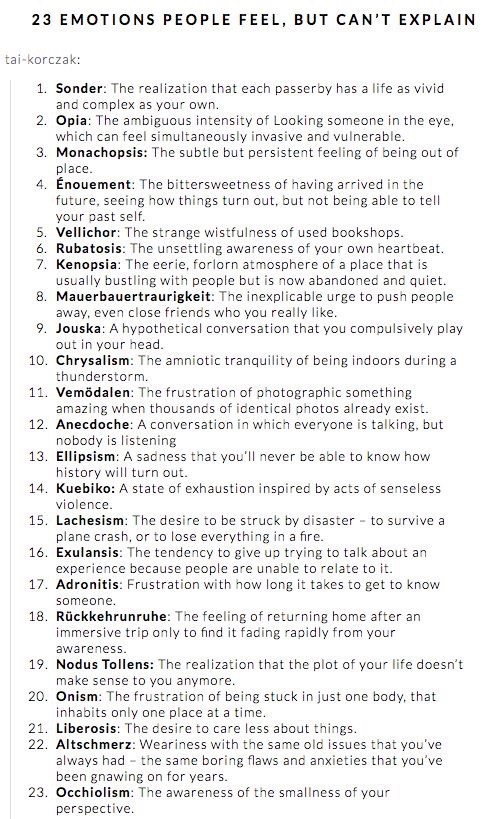
Emotions you feel but can’t explain reference
46K notes
·
View notes
Text
I JUST REALIZED WE DON’T EVEN KNOW WHAT DINOSAURS SOUND LIKE! THEY COULD’VE BEEN SPEAKING FLUENT GERMAN FOR ALL WE KNOW
751K notes
·
View notes
Text
What the HELL did they do to the White House website?
Okay we’re going through this bit by bit.
First of all, this is the first thing that pops up when you visit the website:

But wait, it gets worse.
Once you get in, you see that Trump’s inauguration takes up the entire main page. You know what? I’m fine with that. I mean it makes sense.
What I’m not fine with is this:
As of yesterday (I’m on the Wayback Machine), these are the issues that the Obama Administration listed, leading to pages which went into detail about these issues and what the Administration was doing about them.

Again, that’s from the Obama Administration.
This is the current Issues Tab under the Trump Administration:

No, I haven’t cropped it. That’s it. That’s the entire list. All of those are the issues that Trump’s Administration cares about.
The civil rights page? Gone. Climate change page? Gone. Health care page? Gone. Disabilities page? Gone. It’s all gone. Everything is gone.
They also completely took away all of the pages on Obama’s initiatives, all of the pages on internships and involvement in the White house, all of the pages on different ways to protest (other than the We The People petitions), and for some reason, they even took out most of the pages in the history section. The famous virtual tour? Gone. A detailed history about the architecture, the decor, even theee customs and traditions? Gone.
But here’s the best part.
Most of the ‘Briefing’ section has been cleaned out as well and the tab for weekly addresses has been completely removed.
Well isn’t that just…disturbing?
101K notes
·
View notes
Text
when people defend the “Cis white guy is default” thing like “He’s meant to be an everyman we can all relate to and project on!” kindly remind them the largest ethnic group in the WORLD is Han Chinese and the highest gender percentage fluctuates so if you want an ACTUAL “default” you want a 40 year old chinese person whose gender changes from year to year.
273K notes
·
View notes
Link
81K notes
·
View notes
Text
One Climber’s Opinion
In Response To: When Feminism Goes Too Far by Davita Gurian
Among the 294 people certified as rock, alpine, or ski mountaineering guides by the American Mountain Guides Association in 2010, only 26 were women. Betsy Novak, the association’s executive director, says among 60 guides certified in all three areas, just seven are women, which, she explains, is more than in other countries.[1]
Why are women so underrepresented in climbing and mountaineering?
“The reason why there are fewer women is not in the nature of the profession,” explains Novak.
“I think it’s rooted in our own cultural history.”
And that’s the problem I have with Davita Gurian’s article, “When Feminism Goes Too Far: Are female climbers oppressed? Not really.”
Gurian supplies anecdotal evidence that she has not been oppressed as a result of her gender in climbing. In fact, she claims that a woman should “[try] voicing her fears openly to her male climbing partners, instead of harboring an internal resentment toward them.”
As a woman, climber, and feminist, I don’t harbor resentment toward my male counterparts. In fact, many stand alongside me today in combatting our misogynist cultural history, one that still favors a patriarchal society. On the eve of one of the largest demonstrations for women’s rights in U.S. history, faced with real threats to reproductive health rights and gender equality, I think it’s necessary to address the dangerous logic of Gurian’s article.
Language Matters
Let’s start with this story in Gurian’s article. The male boss of a female climber wants to call an all-female climbing night, Beta Babes, a term that the female climber finds “deeply offensive, oppressive, and demeaning.” After all, “Babe” is a diminutive term for “baby” and used either for female romantic partners, the sexualization of women, or, well, a shy Yorkshire piglet.
Gurian writes, “Sure, she’s got a right to that opinion, but please show me the harm in that term.”
Ok. Let’s discuss it.
As it turns out, language matters. Don’t take my word for it, Dr. Lera Boroditsky, associate professor of cognitive science at UC San Diego, dedicates her career to examining how different languages encourage different cognitive abilities.
For example, in a study comparing Mandarin speakers and English speakers, the difference in the vertical versus horizontal shape of the written language changed the way those speakers thought about time. Mandarin speakers were faster to confirm that the month of March comes earlier than the month of April after they had just seen a vertical array of objects, than after they had just seen a horizontal array of objects. The reverse was true for English speakers.
In the same way, there is evidence that gendered language reinforces traditional gender stereotypes.
In a different study, Boroditsky investigated how the gendering of objects in certain languages affects the way speakers describe those objects.[2] For example, Spanish and German speakers were asked to rate similarities between pictures (of both females and males) and pictures of objects (the names of which had opposite genders in Spanish and German). Boroditsky found that both groups rated grammatically feminine objects to be more similar to females, and grammatically masculine objects more similar to males, even though the objects had opposite genders in the two languages. Furthermore, her research found that German speakers were more likely to use stereotypically masculine descriptions such as “hard, heavy, jagged, metal, serrated, and useful,” while Spanish speakers were more likely to use stereotypically feminine descriptions, such as “golden, intricate, little, lovely, shiny, and tiny” for the same objects according to their linguistic gender.
Although certainly more recent, these are not the first studies to argue that gendered language matters. Philosopher Douglas R. Hofstadter wrote a parody in 1986 on sexist language. In his satire, society spoke in generics based on race rather than gender. So, instead of “chairman”, people said, “chairwhite” or even “you whiteys.” After reading his work, it becomes impossible to argue that black men and women who hear “all whites are created equal,” should be expected to feel included. Hofstadter concludes in his paper[3]:
Only by substituting “white” for “man” does it become easy to see the pervasiveness of male-based generics and to recognize that using “man” for all human beings is wrong.
So, when Gurian asked, “please show me the harm in that term,” I didn’t take it as a rhetorical question. Gendered language matters, and I’m happy to explain further how this happens. Female-gendered word “whore” is bad, but “pimp” is good. Think of all the pejorative words you know, most take a feminine gender. Now, try to think of the male ones. Even Gurian’s use of the word “sensitive” is used almost exclusively to degrade women–we are overly “sensitive". It perpetuates this stereotype that women are somehow slaves to their hormones, which was one of the earliest reasons for why it was said that women shouldn’t be allowed to vote.
Logically, it doesn’t follow that because Flash Foxy exists, we should be ok with creating Beta Babes. In fact, one solution might be, let’s rename both groups.
As gender identity is brought to the forefront of ethical and political debate, there is even more reason to be better educated on words—cisgender, transgender—as well as generics—he, she, ze—that do matter. The debate is about education, not politically-correct rhetoric or sensitivity, and by educating ourselves, women can achieve equal positions in both language and society.
Minorities matter
One of the more frightening statements in Gurian’s article is when she states, “I wrote this essay because I don’t believe that we should be making enemies and villains out of men in response to our own fear of discomfort.” Feminism does not make an enemy of men. Fighting for minority rights does not come to the detriment of the majority. It is not one or the other.
Talking about social injustice, marginalized identity, or gender oppression doesn’t make women “overly dramatic.” In climbing, is it a problem that 65 percent of women, as opposed to 29 percent of men, are uncomfortable in the gym? Does your opinion change if we replace “in the gym” with “in the workplace”?
To those women, Gurian says, “[they] might do well to begin by analyzing themselves first before demanding that everyone around them cater to their every sensitivity.” I’m going to give Gurian a pass on this part—I choose to believe she was channeling a bit of the “overly dramatic,” herself. Respondents from the Flash Foxy survey in question made it perfectly clear that while the climbing community can be wonderful and welcoming, there is still room for improvement.
Citing recognition of Lynn Hill, Beth Rodden, or Ashima Shiraishi doesn’t mean women have equal place in the climbing community. If we want to keep talking anecdotes, I have experienced sexism inside and outside the climbing gym. Both men and women have made me feel marginalized for sexist reasons on certain occasions. Sometimes it’s been hurtful, and sometimes I haven’t even noticed until it was brought to my attention. It certainly won’t make me stop climbing. Often I choose not to address it.
I prefer to talk about evidence rather than about anecdotes. Unfortunately, there is not enough empirical support to show that the climbing community is some sort of gender equality oasis. Statistically-speaking, that is unlikely. So, if you believe that sexism exists in society at large, I feel it is only rational to assume it must exist to the same extent in climbing.
It is indisputable that minorities, whether via race, religion, age, disability, or gender, have been persecuted throughout American history. The fact that Gurian is 23 years old and doesn’t see the same plight, well, good for her. It likely means, all that feminist complaining—the political marches and female-focused news—have accomplished their goal of raising awareness about lingering sexism in society and, sometimes, in the sport of climbing.
Tiffany Skogstrom, setter at MetroRock Climbing Centers, said to Crux Crush[4]:
“Up until recently, climbing was considered a male-dominated sport. Thankfully, more women are climbing strong and closing that gap. It would be nice if the route setting demographics matched the climber demographics.”
Sexism in rock climbing is perpetuated when women get less of a voice about route setting in the gym, when routes are deemed “girly”, when “small fingers” becomes a substitute for the more accurate “strong fingers”, or when any person—male or female—defines physical strength with male-centric words, like “burly” or “butch.”
Yes, more and more, women are gaining ground and recognition in rock climbing. But does that mean we should stop vocalizing our feelings about being marginalized at times? Absolutely not.
I am so happy that Gurian has the strength to speak out against naysayers, to feel unafraid in uncomfortable situations. However, I believe the persistence of voice and action by so-called complaining feminists are the reasons she has that luxury today. Women have dedicated decades, centuries even, to earning that equality and the right to speak out without fear of professional, personal, or physical reprisal.
In my mother’s time, there wasn’t a single woman sports broadcaster on national television. In my time, I watched multiple women boulder V14. And, I hope, in my daughter’s time, she won’t remember sports were once separated in gender binary. But, as always, it’s important to remember how hard women worked to get here and how much farther we must go.
It is impossible for feminism to go too far when it simply refers to equal rights for all.
-Wendy
References & Reading:
[1] http://www.nytimes.com/2010/05/23/sports/23guides.html
[2] Lera Boroditsky, Linguistic Relativity, in 2 Encyclopedia of Cognitive Science 917 (Lynn Nadel ed., 2003); and Janet B. Parks & Mary Ann Roberton, Development and Validation ofan Instrument to Measure Attitudes Toward SexistlNonsexist Language, 42 SEX ROLES 415, 415-16 (2000).
[3] Read the full paper, “A Person Paper on Purity in Language”, here: https://www.cs.virginia.edu/~evans/cs655/readings/purity.html
[4] http://cruxcrush.com/2013/06/10/secrets-of-the-female-route-setter/
46 notes
·
View notes
Photo










Ariana Page is a very…unique artist, due to the fact that she suffers from a condition known as dermatographia (the immune system exhibits hypersensitivity, via skin, that releases excessive amounts of histamine, causing capillaries to dilate and welts to appear (lasting about thirty minutes) when the skin’s surface is lightly scratched). She draws various patterns on her body and then takes pictures of herself, thus works of art are born.
1K notes
·
View notes
Photo

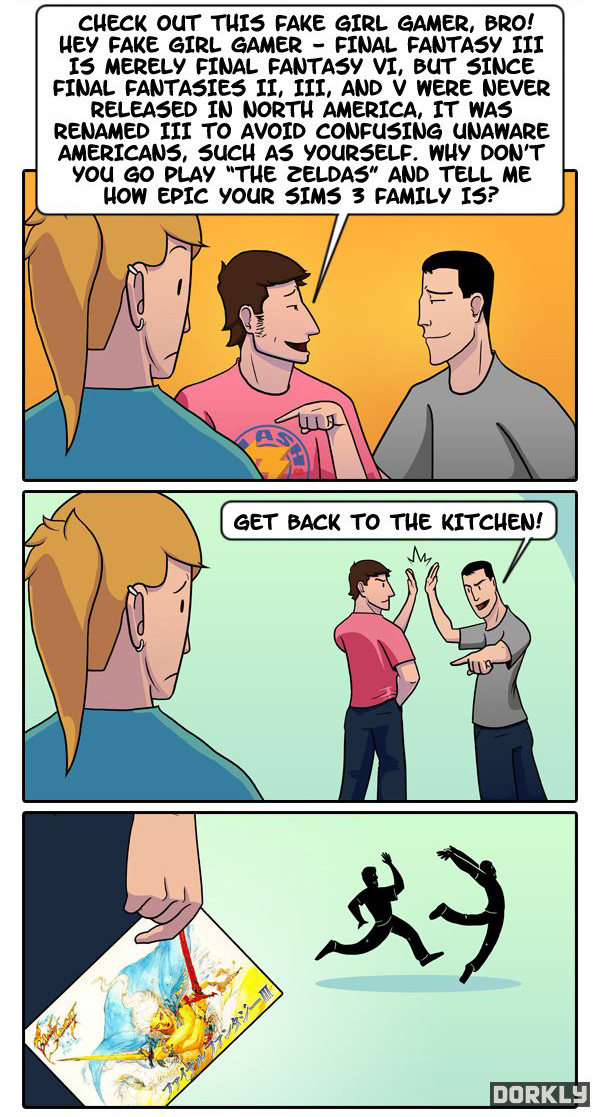
Female Fantasy III
247K notes
·
View notes
Text
When none of your friends are into the thing you’re obsessed with
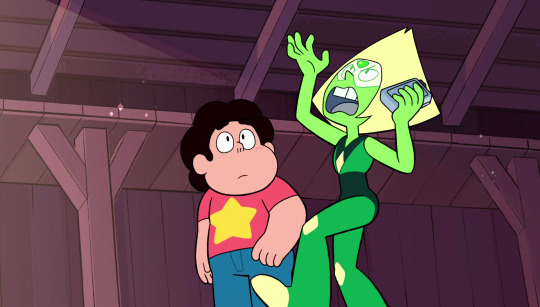

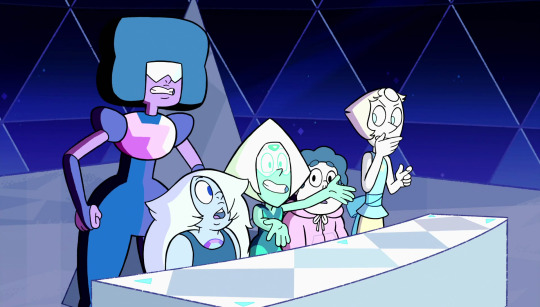
8K notes
·
View notes
Quote
One of the biggest problems with religion is that people stubbornly, insistently reduce God to their own size; they imagine that God loves the same people they love, and that God hates the people they hate. This is not just insidious theology; it’s actually idolatry, because people are just worshiping a blown up version of themselves. So let me say it simply: God’s love transcends all of that.
When your parents reject you, God loves you; when your friends or classmates make fun of you, God loves you; when your priest, minister, imam, or rabbi tells you that you are an abomination, God loves you; when politicians cater to people’s basest prejudices, God loves you. No matter how many times and in how many ways people make you feel less than human, God knows otherwise, and God loves you. When you feel frightened, or abandoned, or humiliated, I hope the unshakeable conviction that God loves you can help hold you and enable you to persevere.
From a Rabbi, An Open Letter To People Who Are LGBTQ by Rabbai Shai Held (via jewishtransition)
40K notes
·
View notes





